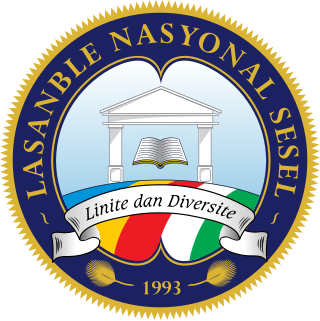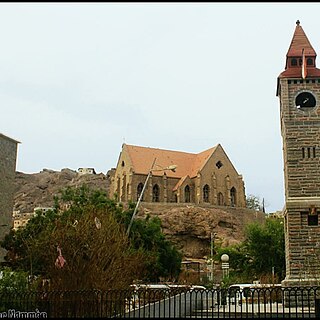A member of parliament (MP) is the representative in parliament of the people who live in their electoral district. Members of parliament typically form parliamentary groups, sometimes called caucuses, with members of the same political party. Many countries with bicameral parliaments, this term refers only to members of the lower house since upper house members often have a different title. The terms congressman/congresswoman or deputy are equivalent terms used in other jurisdictions. The term parliamentarian is also sometimes used for members of parliament, but this may also be used to refer to unelected government officials with specific roles in a parliament and other expert advisers on parliamentary procedure such as the Senate parliamentarian in the United States. The term is aMembers of parliament typically form parliamentary groups, sometimes called caucuses, with members of the same political party.lso used to the characteristic of performing the duties of a member of a legislature, for example: "The two party leaders often disagreed on issues, but both were excellent parliamentarians and cooperated to get many good things done."
A legislative council is the legislature, or one of the legislative chambers, of a nation, colony, or subnational division such as a province or state. It was commonly used to label unicameral or upper house legislative bodies in the British (former) colonies. However, it has also been used as designation in other (non-Commonwealth) nations. A member of a legislative council is commonly referred to as an MLC.

The Speaker of the House of Commons is the presiding officer of the House of Commons, the lower house and primary chamber of the Parliament of the United Kingdom. The current speaker, Lindsay Hoyle, was elected Speaker on 4 November 2019, following the retirement of John Bercow. Hoyle began his first full parliamentary term in the role on 17 December 2019, having been unanimously re-elected after the 2019 general election.

The president of the Senate is the presiding officer of the Australian Senate, the upper house of the Parliament of Australia. The counterpart in the lower house is the speaker of the House of Representatives. The office of the presidency of the senate was established in 1901 by section 17 of the Constitution of Australia. The primary responsibilities of the office is to oversee senate debates, determine which senators may speak, maintain order and the parliamentary code of conduct during sessions and uphold all rules and orders of the senate. The current president is Sue Lines, who was elected on 26 July 2022.

The speaker of a deliberative assembly, especially a legislative body, is its presiding officer, or the chair. The title was first used in 1377 in England.
The Commonwealth Parliamentary Association (CPA), previously known as the Empire Parliamentary Association, is an organisation which works to support good governance, democracy and human rights.

The Parliament of South Australia is the bicameral legislature of the Australian state of South Australia. It consists of the 47-seat House of Assembly and the 22-seat Legislative Council. General elections are held every 4 years, with all of the lower house and half of the upper house filled at each election. It follows a Westminster system of parliamentary government with the executive branch required to both sit in parliament and hold the confidence of the House of Assembly. The parliament is based at Parliament House on North Terrace in the state capital of Adelaide.

The Legislative Council of Fiji was the colonial precursor to the present-day Parliament, which came into existence when Fiji became independent on 10 October 1970.

The Parliament of Barbados is the national legislature of Barbados. It is accorded legislative supremacy by Chapter V of the Constitution of Barbados. The Parliament is bicameral in composition and is formally made up of two houses, an appointed Senate and an elected House of Assembly, as well as the President of Barbados who is indirectly elected by both. Both houses sit in separate chambers in the Parliament Buildings, in the national capital Bridgetown in Saint Michael.

The unicameral National Assembly is the Seychelles's legislative body.

The House of Assembly is the legislature of Dominica. It is established by Chapter III of the Constitution of Dominica, and together with the President of Dominica constitutes Dominica's Parliament. The House is unicameral, and consists of twenty-one Representatives, nine senators, and the Attorney General as an ex officio member. The Speaker of the House becomes the thirty-second member if chosen from outside the membership of the House.

The Parliament of The Bahamas is the bicameral national parliament of the Commonwealth of The Bahamas. The parliament is formally made up of the sovereign, an appointed Senate, and an elected House of Assembly. It currently sits at the Bahamian Parliament Building in Nassau, the national capital.

The National Assembly and the King of Saint Christopher and Nevis jointly make up the legislature of Saint Kitts and Nevis.

Speaker of the House of Representatives of Antigua and Barbuda is the presiding officer in the House of Representatives of Antigua and Barbuda. Prior to conducting any other business, the House must elect a Speaker at its first session following a general election. If the position of Speaker becomes vacant at any point before the next dissolution of Parliament, the House must elect a replacement as soon as is practically possible. The Speaker may be chosen from among House members or from among individuals who are not House members but are eligible to serve in that capacity. Before conducting any other business other than electing the Speaker during the first meeting following a general election, the House shall elect a member to serve as Deputy Speaker. If the position of Deputy Speaker becomes vacant at any point prior to the next dissolution of Parliament, the House shall, as soon as is practically possible, elect another member to fill the vacancy. A minister or parliamentarian cannot be elected as the speaker or deputy speaker of the house by the house. When the position of Speaker is open, the House may not conduct any business.

The Speaker of the National Parliament is the Speaker of the National Parliament of the Solomon Islands. The position was established under section 64 of the Constitution of the Solomon Islands of 1978, when the country became independent from the United Kingdom. It is similar to the position of Speaker of the House of Commons in the U.K.; the Solomon Islands is a Commonwealth realm and maintains a Westminster system of government.
The 1966 Dissolution Honours List was issued on 19 May 1966 following the dissolution of the United Kingdom parliament in preparation for a general election.

The House of Assembly of Kiribati has a Speaker, a function adapted from the British Westminster model. The position was established in 1979 by article 71 of the Constitution, when the country became independent from the United Kingdom. It replaced the Speaker of the former House of Representatives existing since 1967, then known as Legislative Council in 1970 and House of Assembly since 1974.

The president of the Senate of Ceylon, was the presiding officer and the highest ranking-official of the Senate of Ceylon.
Pershing Waldron was a Dominican politician who served as Speaker of the House of Assembly of Dominica during the turbulent times of June 1979.

The Legislative Council of Aden was the legislative body of Aden Colony and State of Aden from 1947 to 1966.















